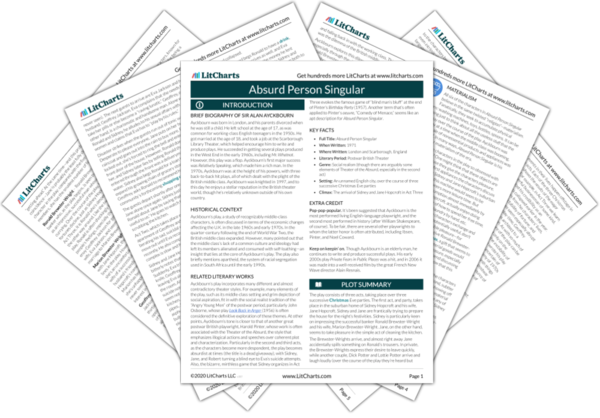In contrast to the other guests, Eva is comically frank in her conversation—instead of making idle chitchat about washing machines, she “goes for it” and talks about her depression (or other, unnamed mental illness). In a way,
all the characters structure their existences around material things, on which they’re completely dependent—Eva with her pills, Jane with her appliances, etc. Yet Eva is the only character who seems not to like this state of affairs.
